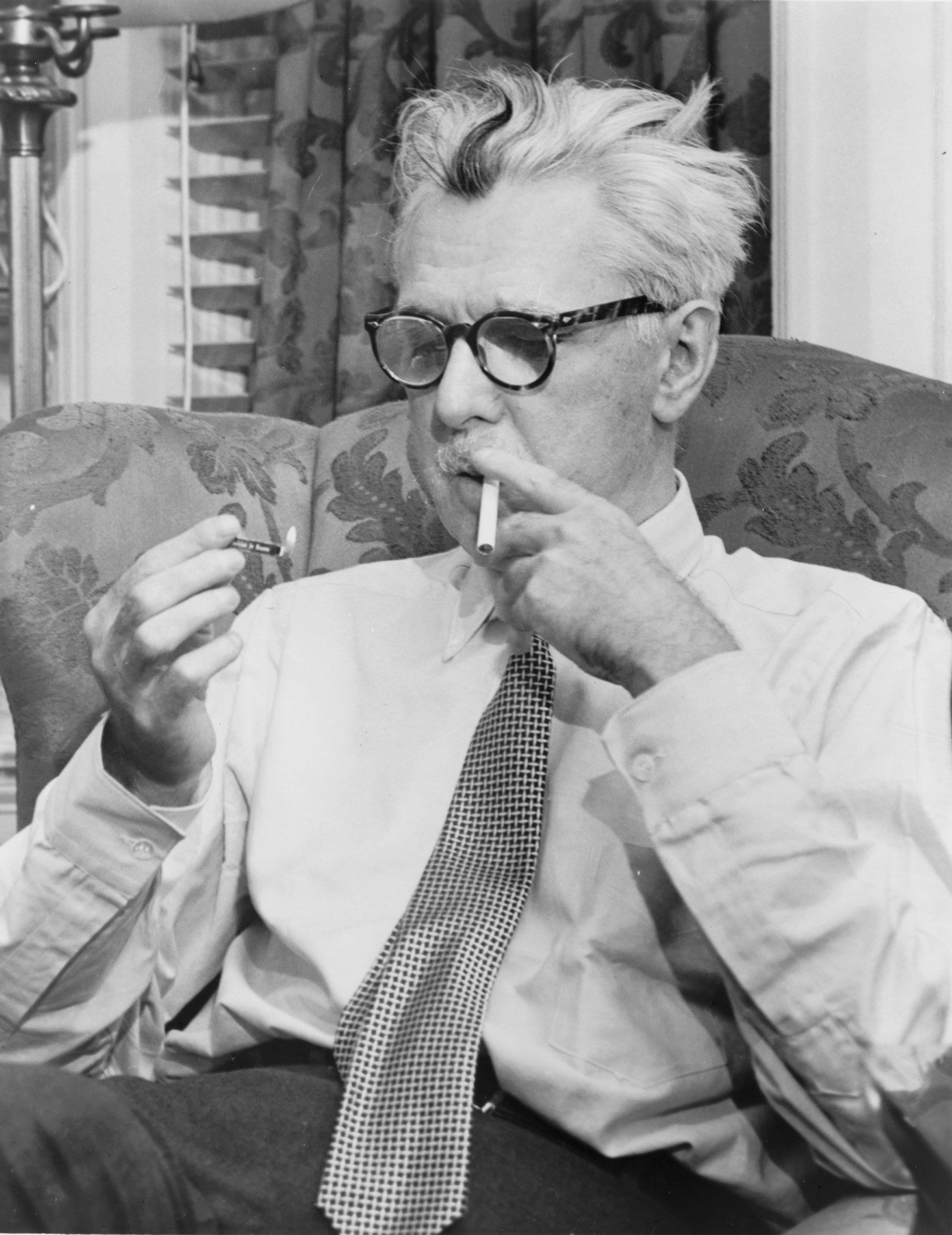James Grover Thurber – amerykański humorysta i satyryczny rysownik. Najbardziej znany z rysunków i opowiadań zamieszczanych w magazynie The New Yorker.
W dzieciństwie stracił oko, trafiony strzałą przez brata; na drugie widział odtąd coraz gorzej. Po studiach na Uniwersytecie Ohio był w latach 1918-20 szyfrantem Departamentu Stanu, w Waszyngtonie i w Paryżu, w latach 1921-4 reporterem Columbus Dispatch.
W 1925 roku przeniósł się do Nowego Jorku i pracował tam dla New York Evening Post, a od 1927 roku w The New Yorker jako redaktor. Pierwsze jego rysunki ukazały się w tym magazynie w 1930 roku i odtąd publikowano je tam regularnie do początku lat 50., kiedy ostatecznie osłabł mu wzrok.
Najbardziej znane jego opowiadania to The Dog Who Bit People oraz The Night the Bed Fell, zamieszczone w książce My Life and Hard Times , mieszance autobiografii i prozy, która przyniosła mu jako pierwsza uznanie, oraz słynne The Secret Life of Walter Mitty, o heroicznych snach na jawie spokojnego, uporządkowanego żonatego mężczyzny w średnim wieku, ze zbioru My World - And Welcome to It . Patrz film: Sekretne życie Waltera Mitty z 2013 roku.
Napisał także ponad 75 bajek; kilka baśni książkowej długości; i liczne humorystyczne eseje, np. o współczesnym mu języku angielskim. Analizował też fenomen radiowych oper mydlanych.
Wikipedia
✵
8. Grudzień 1894 – 2. Listopad 1961
•
Natępne imiona
James Grover Thurber
